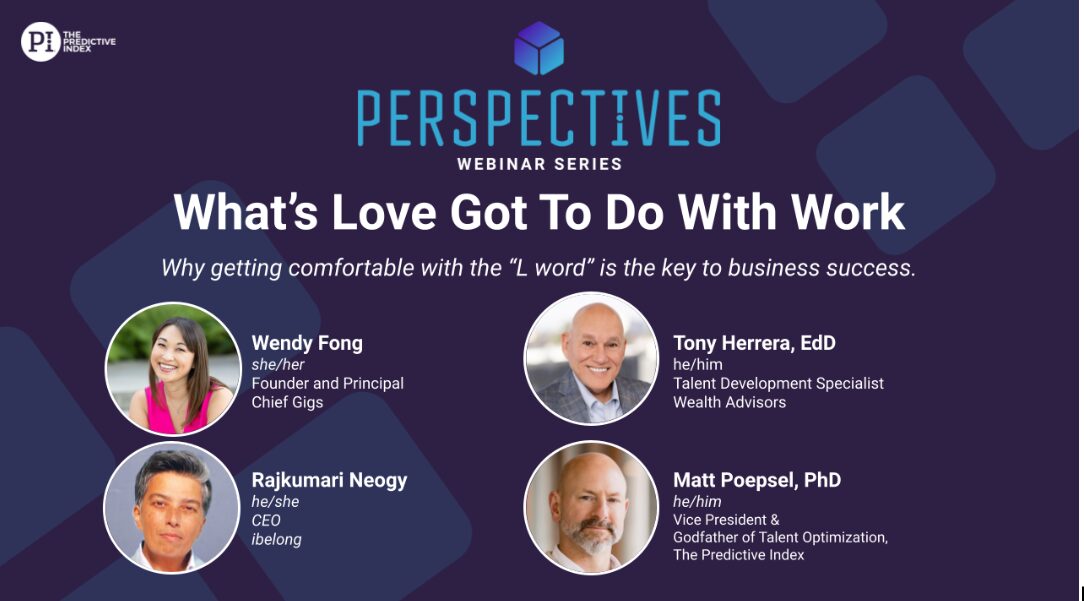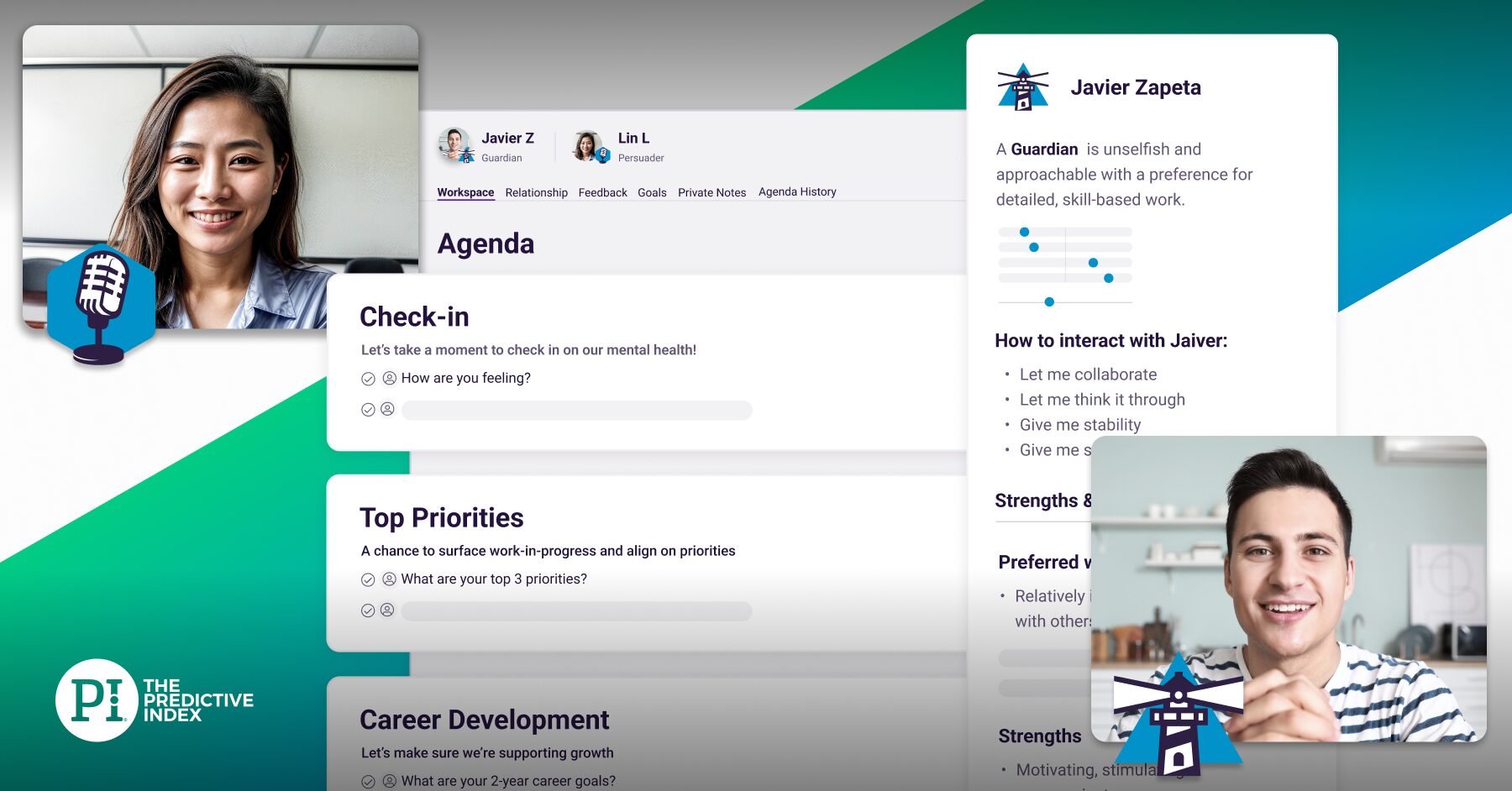By Jillian Phipps
PI Partner and President of Predictive Results breaks down what a sales superstar looks like and the key to managing them
As the President of Predictive Results, a Predictive Index (PI) certified partner, Steve Waterhouse’s vast experience in sales and consulting is what brought him to PI. He has helped several companies improve their sales and increase profits using PI’s tools and solutions.
Steve clued us in on what it takes to make sales superstars and the management needed to produce these high performing people.

What makes a good sales manager versus a sales representative?
The classic problem when you promote your best sales person to a sales manager is you loose your best salesperson and create your worst manager. The reason is, they’re completely different skill sets. Unfortunately, in our society we put them on the same track. We’ve said, “If you’re really good as a sales person, you get to stop selling and become a manager.” What happens is most of the best sales people are unconscious competence. They couldn’t describe what makes them great on a bet with a gun to their head. They’re just naturals at it. They use sales plans as a general guideline and charge forward with huge confidence. That’s not coachable. That’s innate. So you take that person and you say, “Now, I want you to turn a bunch of people who aren’t like you into you…” Now that’s an impossible dream.
What you need is someone who can look at those people, who are these big, strong competitors, and say, “I can coach you. I understand you. I can guide you. I’m not going to micromanage you. I can make you better. I can help you focus your time so that you get better results.”
“A good sales person is not a self-sustaining independent entity.”
How closely should employers be looking at sales experience as opposed to behavior or cognitive fit?
I think sales experience, unfortunately, is virtually irrelevant. The reason is, we never look at sales experience in proper context. If someone comes in and says, “I generated $6 million worth of business at my last company,” that’s great. But how much of that came from existing clients and referrals? How much of it came from good, solid leads? How much of a closing did you actually do? How much of a sales team did you actually have supporting you? How many of these deals were half in the bag when you came to the company?
You get this person who’s done phenomenally well at the last company, but they walk into your company and fall flat on their face and you wonder, “How could that be possible? They were such a superstar over there?” Well, they were, but over there was over there and over here is over here; It’s not the same environment. You need to understand what is required in the current environment and what makes a superstar at a particular place.
What are the most common mistakes that you see organizations make when it comes to sales or hiring for sales?
There are three things that make successful sales. The two primary ones are, a really good sales process and the other is really good sales people. You need to put both of these things together. If you put really good sales people out there without a good sales process, you won’t have great success. If you have mediocre people with a really great sales process, you won’t have great success. If you have great people with a great sales process, you’ll knock it out of the park.
Join 10,000 companies solving the most complex people problems with PI.
Hire the right people, inspire their best work, design dream teams, and sustain engagement for the long haul.
The third thing you need is a manager tying it all together. It is clear that it’s a combination of things. You can’t say, “Let’s just throw great people out there.” A good sales person is not a self-sustaining independent entity. That’s the other mistake people make. There was a day when we needed mediocre sales people. That day is gone, the web takes care of that. Anything that a mediocre sales person would have sold, I find myself on Amazon.
So now what do you do? Now, if all we’re going to hire are top end sales people, then we ought to take care of them as if they were our prized possessions, which means we need to make sure that everything that they have on their plate that’s not about sales comes off their plate. That’s why one of the fastest growing positions in the country right now is sales support. Let’s take people who are more nurturing and maybe more organized, and let’s put them behind our sales people so our sales people can do what they do best. When our sales people walk out of a deal they look at the client and say, “The next call you will get will be from our accounts manager. Our accounts manager will walk you through everything you need to know to get from where we are right now to up and running.” It’s not the sales person who’s going to do that. It’s somebody with far more patience, and far more time and freedom of time to schedule these meetings and make the rest happen.
I think that’s the other mistake. It’s not only about putting people in the wrong spot with no process but then we ask of them the impossible. “I want you to prospect. I want you to sell. I want you to nurture. I want you to upsell.” Good luck on that happening.
“You’re responsible for your people’s success and how they get there.”
What are some things you’ve learned from your time in sales or have experienced when hiring for sales positions?
What I’ve learned in this business is that CEOs don’t wake up in the morning and say, “The problem with my company is I don’t use a behavioral or a cognitive assessment tool.” They wake up in the morning and they say, “My sales people stink, my customer service people are ticking off my customers, my operations people don’t know what they’re doing, and I’ve got a bunch of idiots running around here and I don’t know how to fix it.” They don’t understand that PI really is the solution to all these issues.
In order for these CEOs to understand who we are and what PI is, you need to be able to tell the emperor he’s not wearing clothes. You need to go to the CEO and say, “I know you’ve been hiring people for the last 30 years but you’re no good at it and let me prove it.”
When it comes to sales managers make the mistake of believing that good people can do good stuff. We have to go into the process believing that it’s harder than that. I think if we believe it’s harder than that then we will end up with more successful people. At the end of the day, I measure myself by how many of the people I hire turn into superstars and are able to create a living from this. If I were to challenge CEOs to raise the bar on their own expectations, I’d say, you’re responsible for your people’s success and how they get there.
Want to know more about how to identify, interview, screen, and hire top sales candidates? Steve dives into these points in a recent podcast with Andy Paul, renowned business coach, author, and speaker.











